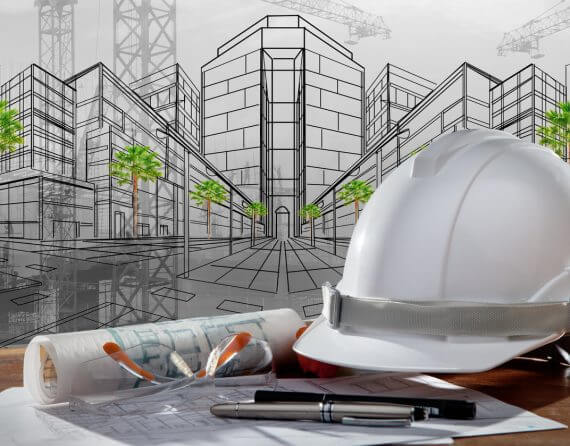
The land development process comes down to one key factor: the land you use. The basis for all land development is, most obviously, the property you wish to purchase and whether it can support the process going forward. So, the first goal for all investors involved in development is to determine if the land they are looking to buy is worth the cost; this is where site feasibility studies come in. To best assess the property you wish to use, civil engineers can conduct site feasibility studies.
Site feasibility studies set out to answer the essential questions for a piece of property. For example, these studies uncover any potential hazards, whether the land can support construction and whether or not utilities are readily available. Ultimately, a feasibility study will determine whether it is profitable for you to utilize the piece of land in question.
When pressing forward with a site feasibility study, it should address certain crucial aspects of the property you wish to purchase. Those aspects include zoning, building codes, existing conditions and your budget.
Depending on where your land is located, it may be zoned for either commercial or residential usage. Finding a property that is already zoned correctly for your project is an incredible boon to your development. However, if looking to have your property rezoned, that can be a significant undertaking with your local city government. Zoning can also affect building restrictions, such as the maximum height of construction or property lines.
In addition to restrictions in place by zoning, building codes establish more rules for construction. Building codes are required by law to allow for better ease of access and ensure any finished project is safe. For example, laws require a specific amount of exits for your building based on the number of people expected to be in it. Other building codes have to do with stairs, elevators, ramps, emergency exits and more.
The existing conditions of a property can both relate to a lot with no construction or one with previous development. In terms of a piece of land without any prior structure, a study will inform you of what the existing environmental conditions are. Such environmental conditions consist of topography, water capacity, environmentally sensitive areas and other factors. Conversely, when dealing with property previously developed on, a study will determine if old construction is up-to-code, if it’s structurally sound and more.
Finally, a site feasibility study will present you with a price needed to ensure you can approve a property for use. Some of these fees require upfront payment to move forward with a project (like rezoning). Other costs are a projection of what you must consider when developing your land (like contending with building codes). Overall, if a study presents you with a budget you can manage, the property is considered feasible to begin development on.
To do a complete site feasibility study, civil engineers conduct various tasks to answer the questions asked of investors and determine the overall budget of a project. Some of these tasks include:
As a site feasibility study will determine the direction of your entire land development process, you can consider it the most crucial step. Thus, you want the most experienced civil engineers and land surveying professionals handling your study for you. Thankfully, Austin Engineering is up to the task.
Austin Engineering offers high-quality assessments for any development projects you’re looking to undertake. Furthermore, we are experts in land development, land surveying and landscape design. Our clients not only reside in Illinois and the surrounding states, but we serve national developers throughout the United States.
If you’re looking for a site feasibility study you can count on, call the professionals at Austin Engineering today. You can contact us at (309) 228-9552. Also, our Peoria office is located at 311 SW Water St, Ste 215, Peoria, IL 61602.